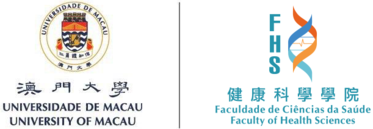
星期二、五 14:00 – 15:00
| 名稱 | 職稱 | 辦公室 | 電話 | 電郵 |
|---|---|---|---|---|
| 孫婷 | 博士生 (實驗室代表) | N22-2031 | +853 8822 2089 | yc17622@um.edu.mo |
| 薛志華 | 博士生 | yc57652@um.edu.mo | ||
| 黎海怡 | 博士生 | yc58620@um.edu.mo | ||
| 劉運澤 | 博士生 | N22-2031 | +853 8822 2089 | |
| 陳茜 | 博士生 | |||
| 楊敏 | 博士生 | |||
| 朱奕 | 博士生 | |||
| 賴偉寧 | 博士生 | |||
| 馮健洋 | 博士生 | |||
| 王天 | 博士生 |
| Education | |
| MD | Academy of Military Medical Sciences, Beijing, China |
| MMed | Shanxi Medical University, Taiyuan, China |
| BMed | Shanxi Medical University, Taiyuan, China |
| Positions | |
| 2020 – Present | Associate Professor, Faculty of Health Sciences, University of Macau |
| 2014 – 2020 | Assistant Professor, Faculty of Health Sciences, University of Macau |
| 2010 – 2014 | Staff Scientist, City of Hope National Medical Center, USA |
| 2006 – 2010 | Postdoctoral Fellow, Howard Hughes Medical Institute/NYU School of Medicine, USA |
| 2003 – 2005 | Associate Investigator, The Academy of Military Medical Sciences, Beijing, China |
| 2000 – 2002 | Postdoctoral Fellow, Howard Hughes Medical Institute/UCLA School of Medicine, USA |
| 1998 – 2000 | Assistant Investigator, The Academy of Military Medical Sciences, Beijing, China |
| Research Interests |
| Epigenetics, which studies the heritable changes in phenotype that are independent of alterations in the DNA sequence itself, may hold the key to understanding the fundamental aspects of how the same genome encodes many different cell types and the cellular memory. Epigenetic changes are also involved in the development of many human diseases such as, cancer, metabolic and cardiovascular diseases. The research of my laboratory focuses on two main research areas related to epigenetics:
1. Cancer Epigenetics 2. Signal transduction pathways in Epigenetics |
| Representative Publications |
|
| Google Scholar Profile |
| Current Research Grants | |
| Macau Science and Technology Development Fund (FDCT) | |
| 2019 – 2022 | FDCT 0107/2019/A2 |
| 2016 – 2019 | FDCT 095/2015/A3 |
| 2015 – 2018 | FDCT 137/2014/A3 |
| National Natural Science Foundation of China and Macau Science and Technology Development Joint Fund (NSFC-FDCT) | |
| 2017 – 2019 | NSFC-FDCT 033/2017/AFJ |
| University of Macau Multi-Year Research Grant (MYRG) | |
| 2019 – 2021 | MYRG2018-00022-FHS |
| 2018 – 2020 | MYRG2017-00099-FHS |
| Guangzhou Science and Technology Innovation and Development Special Funds | |
| — | EF006/FHS-LG/2018/GSTIC |

